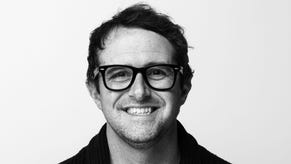Something Special
Why Special Effect wants your help to make gaming more accessible for the disabled
One developer that is already working with the charity is Splash Damage, who most recently released Brink. After some request by disabled gamers for specific features to be added to their titles, they decided to approach the team about doing more.
CEO and game director Paul Wedgewood explained why he had made the decision to investigate the charity and to start working with them.

"There's a whole political angle," he explains, "which is we're required by law to put ramps next to staircases, so we already know that in the West we have a moral obligation to solve this."
"The simple fact is that its easy to make your games accessible for people whose motion or movement or hearing or sight is impaired, and there's not really any excuse for developers not to do it, it's just a really straight forward thing to do."
Splash Damage is best known for its multiplayer games, so the team are looking into running game servers for future releases that are set at a slower speed. And he acknowledges that while the demand for those type of things might only come from 0.01 per cent of the fan base, they're so easy to set up that there's no excuse to exclude anyone.
It's easy to make your games accessible for people who are impaired, and there's not really any excuse for developers not to do it.
Paul Wedgewood, CEO, Splash Damage
The company has already committed to allowing SpecialEffect to access its collection of games for the loan library, and asking the charity for feedback on Brink so they can work it into future development plans.
"We're going to write up our designs and considerations for control remapping that we did in Brink, to create documentation that can help to show other developers what was involved in the accessibility," he says.
"Because none of this is proprietary, it's not a feature that's going to sell more copies of the game, it's not knowledge that we need to protect, it's knowledge that needs to be shared."
And Wedgewood's ambitions go beyond sharing what they learn from working with SpecialEffect to creating a whole community of developers pooling their expertise to help make games more accessible.
"If there are other developers out there that are thinking about speed or difficulty settings they could write that bit of the documentation, if someone was working on digital aids they could work on that bit of the documentation, audio aids they could write that bit, the display accessibility features could be contributed by somebody."
As for the future? The team spend half their income of equipment alone, so fundraising is always a major concern. To allow them more stability they'll soon be launching way for people to donate in a more regular way, as well as making it easier to make one off donations.
"In terms of context, if we can have six thousand people who care about games to give us £2 a month then that would pay for our loan library each year," points out Nick.
"People think we're bigger than we are. They see David Cameron, they see the eye control, and they think we must be a million pound charity. That's not the case."
More money also would mean more staff, like occupational therapists and people to work in research and development, to help the team expand the work they're already doing.
They've planned at a number of roadshows to institutions like Great Ormond Street Hospital and The Helen and Douglas House Hospice, training therapists and care worker in the use of specialist equipment, and giving people the chance to see the support on offer to them.
The loan library continues to grow, and needs to, because the team won't take equipment away from someone until they can afford to buy it for themselves, so the biggest frustration is forcing someone to wait for the equipment that could so drastically change their lives.
"There's a huge need out there," said Mick.
"I mean one of the reasons I had a rant this morning was just out of frustration that there are some really needy people out there who need our time and systems, some very disabled people out there, and its so frustrating not being able to help them out straight away."
One thing is clear, and that's that SpecialEffect won't stop all their hard work, partly because the differences they're making are so important to the people, and the families of the people they're helping, and partly because they it's clearly just a part of their nature. They are good people, and as long as there are people they can be helping, they'll keep giving up their time and expertise.
"I think Mick has done charity work for such a long time I don't know if he knows another way to exist other than to be out there helping people," says Wedgewood.
Mick explains that they're sometimes asked why they don't charge for their services, but despite the cost of the equipment, the labour intensive nature of the work, the constant travelling, the idea seems ludicrous to him.
"You start charging, then at the end of two hours payment you're off. We don't work like that, people don't stop having a disability after two hours," he explains at the end of our visit.
"If we're doing a good enough job, then somehow, people will want to support it."
You can find contact details for the charity at the SpecialEffect website, and follow them on Twitter.






.jpg?width=291&height=164&fit=crop&quality=80&format=jpg&auto=webp)

